A Not-So-Glam News Weekend for the Royals
The Spanish royals face backlash, as the British are under investigation
This past weekend was positively bursting with disagreeable news concerning some of the royal houses of Europe—stories continuing narratives of unease and distrust that are becoming all too common. These stories contrast with the polished, alluring image often associated with monarchy—the fun stuff that often serves as our entry point for royal watching. But if we're going to enjoy the gowns and jewels responsibly, then we also have to engage with all the…ick.
From a controversial royal visit to scrutiny of royal properties, these stories reflect that, as always, there’s more to the modern royals than just the glitz and glamour.
Mud-Slinging in Flood-Stricken Spain
King Felipe and Queen Letizia of Spain arrived in Valencia this past weekend, intending to bring compassion and understanding to flood-affected locals. With the death toll from flash floods in the area climbing to over 205 this weekend, a visit like this might have also been an effort to highlight the urgent need for recovery resources. But it quickly became apparent that the royal visit would garner mixed reactions—some even turning violent.
While many Valencians had gathered to express their gratitude and share their struggles with the royal couple, not all voices in the crowd were as welcoming. As frustration bubbled over, protesters hurled mud in a display of dissatisfaction with Prime Minister Pedro Sánchez. Sánchez was escorted away from the crowds by his security; he faces heavy scrutiny over the lack of government support in the wake of the devastating floods.
A mud-speckled Felipe and Letizia, though, stayed in the thick of things. And while the mud-slinging wasn’t directly aimed at them, their proximity made Spain’s King and Queen witnesses to the public's anger and sorrow—a poignant reminder of the monarchy's complicated relationship with public sentiment. Queen Letizia, especially, was visibly moved, shedding tears as she listened to survivors recount their grueling experiences.
The King and Queen’s ability to respond empathetically, even amidst frustration, was on full display—a testament to the unifying power that a royal family can have in moments of national turmoil.
Mud-Raking in the British Press
While the Spanish monarchy navigates its own rough waters, another royal family faces their own challenges in maintaining public trust and goodwill.
Over in the UK, a recent investigation by Channel 4 and The Sunday Times has generated scrutiny over how the Duchy of Cornwall and Duchy of Lancaster—vast estates controlled by Prince William and King Charles, respectively—have reportedly generated millions in revenue by leasing lands to national organizations and charities, including the NHS. The report highlights concerns that these estates, which benefit from royal tax exemptions, may be profiting at the public's expense.
The income from both the Duchies is different from the taxpayer-funded sovereign grant, which cover’s the royal family’s official duties. Neither the King nor the Prince of Wales are legally obliged to pay income tax on the profits from their estates—but both have offered to do so. Still, earlier this year, Prince William fell under scrutiny for refusing to disclose the amount he paid in tax (though his spokespeople insist he’s paid “an appropriate amount”).
The Times’ investigation uncovered several instances where the Duchies charged high fees to national organizations that lease land for public services. For example, it was revealed that the Duchy of Lancaster (under King Charles’ management) is charging one NHS trust at least £11.4 million in rent to store its ambulances over the next 15 years. Additionally, the Duchy of Cornwall, managed by Prince William, has a £37.5 million agreement in place with the Ministry of Justice to lease Dartmoor Prison—which has been empty of any prisoners since August of this year due to dangerously high levels of radon. The Ministry of Defense also pays an undisclosed annual amount for the armed forces to train on Duchy land.
In another example, local councils and schools leasing from these estates pay significant fees—which critics argue essentially redirect public funds into private royal revenue. The scale of these fees has led some to question whether royal lands should be used to support essential public services at reduced or no cost rather than being treated as high-profit private assets.
Though both King Charles and Prince William have emphasized their commitment to charitable work, critics argue that leasing essential public service land for personal profit undercuts their altruistic claims. With these vast estates holding substantial influence over national and charitable institutions, the investigation has sparked a debate over transparency and accountability within the monarchy’s financial dealings. Particularly concerning is the fact that these duchies continue to operate as private estates, largely outside government oversight.
This controversy has intensified calls for increased oversight of royal finances, and with public interest in the monarchy’s financial entanglements growing, this revelation is unlikely to fade quickly. And as my girl Meredith Constant pointed out in a TikTok on Monday, these revelations showing that taxpayer dollars do end up in palace coffers only serve to further draw the monarchy’s unchecked use of their “private” wealth for causes like Prince Andrew’s court settlements into greater question.
Prince William the Slumlord?
If that weren’t enough, a separate investigation launched by The Mirror just revealed the dismal state of certain rental properties within the Duchy of Cornwall, overseen by Prince William. The units in question have been leased out in substandard conditions—with residents raising concerns over issues such as mold, inadequate heating, disrepair, and high rental costs.
I find it fascinating that these two investigations contain such overlap about the state of the royal family’s Duchies’—but not surprising. After all, the Channel 4 investigation contained the additional revelation that, despite both King Charles and Prince William’s keen interest in environmental issues, “many residential properties let out by the royal estates are in breach of basic government energy efficiency standards.”
Also from the Guardian: “The investigation found 14% of homes leased by the Duchy of Cornwall and 13% by the Duchy of Lancaster have an energy performance rating of F or G. Since 2020, it has been against the law for landlords to rent out properties that are rated below an E under the Minimum Energy Efficiency Standards regulations.”
Across the board, these disrepair conditions stand in stark contrast to the high revenues generated by the Duchies of Lancaster and Cornwall. That tenants of the literal Prince of Wales have faced such challenges while paying premium prices has sparked criticism, especially as the Duchies claim to prioritize tenant and environmental well-being.
Through a spokesperson, Prince William recently reinforced that his goal for the Duchy involves tackling homelessness, hitting net zero emissions by 2032, and launching mental health programmes. But how commendable are these goals when any number of your tenants are living in damp, substandard accommodation?
Sadly (for William), the timing of these recent investigations into the Prince of Wales’ financial practices could not be more challenging, given that he has embarked on significant charitable work this week. While he focuses on promoting environmental sustainability through a visit to South Africa for the 2024 Earthshot Prize, the scrutiny surrounding the Duchy’s profits and housing conditions has to be frustrating for the “aspiring global statesman.”
I’ve written before about William’s aim of projecting an increasingly diplomatic image, wherein he positions himself as a future king dedicated to tackling some of society's toughest challenges through soft advocacy. A Kensington Palace spokesperson doubled down on this narrative on Monday, telling Victoria Ward at the Telegraph that the South Africa trip was “another example of the evolution of William as a global statesman, as we’ve seen, whether it be representing his father in Kuwait last year, or indeed, when he was sat with 15 other world leaders at D Day earlier this year.”
That’s their party line, and they’re sticking to it. But once again, KP…show, don’t tell.
This week, we’ve witnessed the toughest pushback (or at least silent challenge) of that “global statesman” image yet; Prince William faces serious allegations of (at best) negligence and (at worst) disgraceful, inhumane business dealings. This dual narrative of global advocacy amid at-home controversies further highlights the complexities of modern royal responsibilities, and I’m interested in seeing how William now navigates the demand for greater accountability.
“What Scandal? I’m in South Africa”
Despite the rough weekend coverage of his business dealings, Prince William is laser focused on keeping the spotlight on his charitable initiatives.
On Monday, he arrived in South Africa to officially kick off Earthshot Prize Week; the visit will include events with conservationists, entrepreneurs, and past Earthshot winners, all with an aim to foster local partnerships and inspire regional contributions to environmental sustainability.

The Earthshot Prize, co-founded by Prince William, awards five winners each year with grants of £1 million for groundbreaking projects in conservation, energy, and waste management. (This year’s ceremony will commence on Wednesday, November 6th.)
In 2023, William told a crowd at his New York City Earthshot Prize Summit that “while a healthy dose of realistic pessimism about Earth’s climate is important,” he wants people to instead remain optimistic and believe “there is hope; there are people out there doing incredible things that will have massive impacts on our futures.” And this line of thinking seems to now be present in his other great passion: ending homelessness in Britain.
Homewards
The Prince of Wales’ visit to South Africa follows the release of his new documentary on homelessness, which has drawn public attention to his ongoing efforts to address the issue head-on. The documentary (titled, perhaps somewhat glibly, “Prince William: We Can End Homelessness”) highlights his visits to shelters and conversations with people experiencing homelessness; in conjunction with his pilot programme, Homewards, William aims to break stereotypes surrounding homelessness and emphasize that housing insecurity is a systemic issue that can affect anyone—but one that can also be solved within our lifetimes.
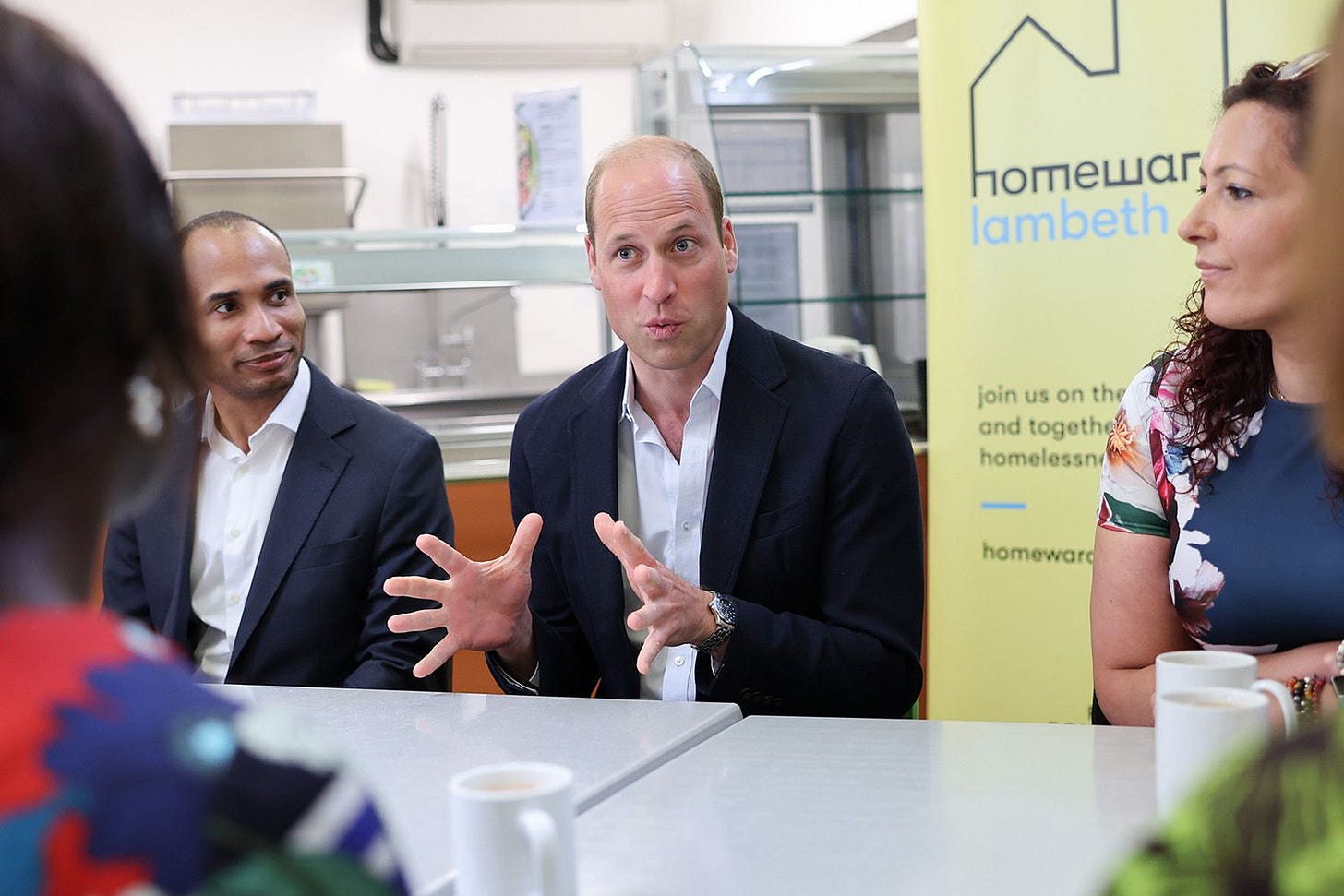
Many reviews have critiqued the documentary for its limited scope, so I won’t pile on. But William's messaging, both as a documentarian and a patron, is clear: he sees himself as a catalyst for change and hopes his projects—both related to climate change and housing—will inspire public and private sectors alike to address the root causes of our collective societal issues.
The irony here is striking, given the ongoing investigations into Prince William’s very own rental properties. There’s such a dissonance between William’s advocacy for awareness of the issues faced by his subjects without stable housing and his own Duchy’s high rental fees and subpar living conditions. The very last thing he’ll have wanted the public to see is this gap between his messaging and the realities of those living in his properties—but that gap now threatens to widen.
Accountability Matters
It makes sense that royals across the globe would strive to maintain a narrative of optimism and positive change around their causes and appearances. But these recent events remind us that significant concerns linger beneath the surface. From King Felipe and Queen Letizia's tumultuous visit to Valencia to the scrutiny surrounding Prince William's Duchy of Cornwall, these incidents highlight the complexities and contradictions that can quickly overshadow a modern monarchy’s projected image.
While the royals keep themselves busy promoting social and environmental initiatives, we can’t overlook the pressing issues of accountability and transparency lurking in the background. The ongoing struggle to balance royal privilege with public service raises some important questions. And if modern monarchies want to keep the public’s trust, they will need to tackle these challenges head-on. It’s a strategy not unlike that of King Felipe and Queen Letizia, as they allowed themselves to be pelted with mud in order to show solidarity with a grieving community. After all, it’s the real, gritty issues that often matter most to the people the royals aim to serve.





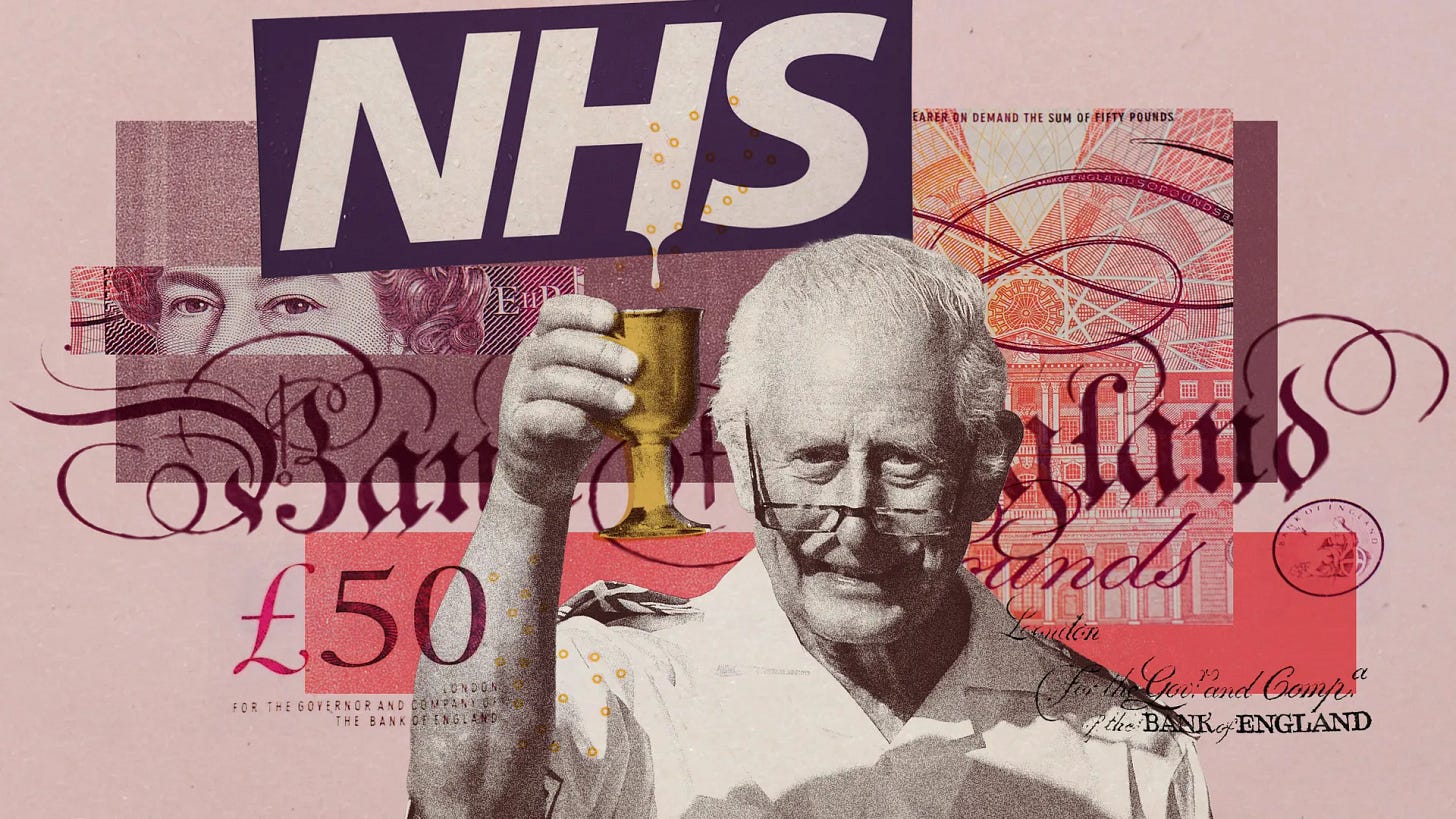
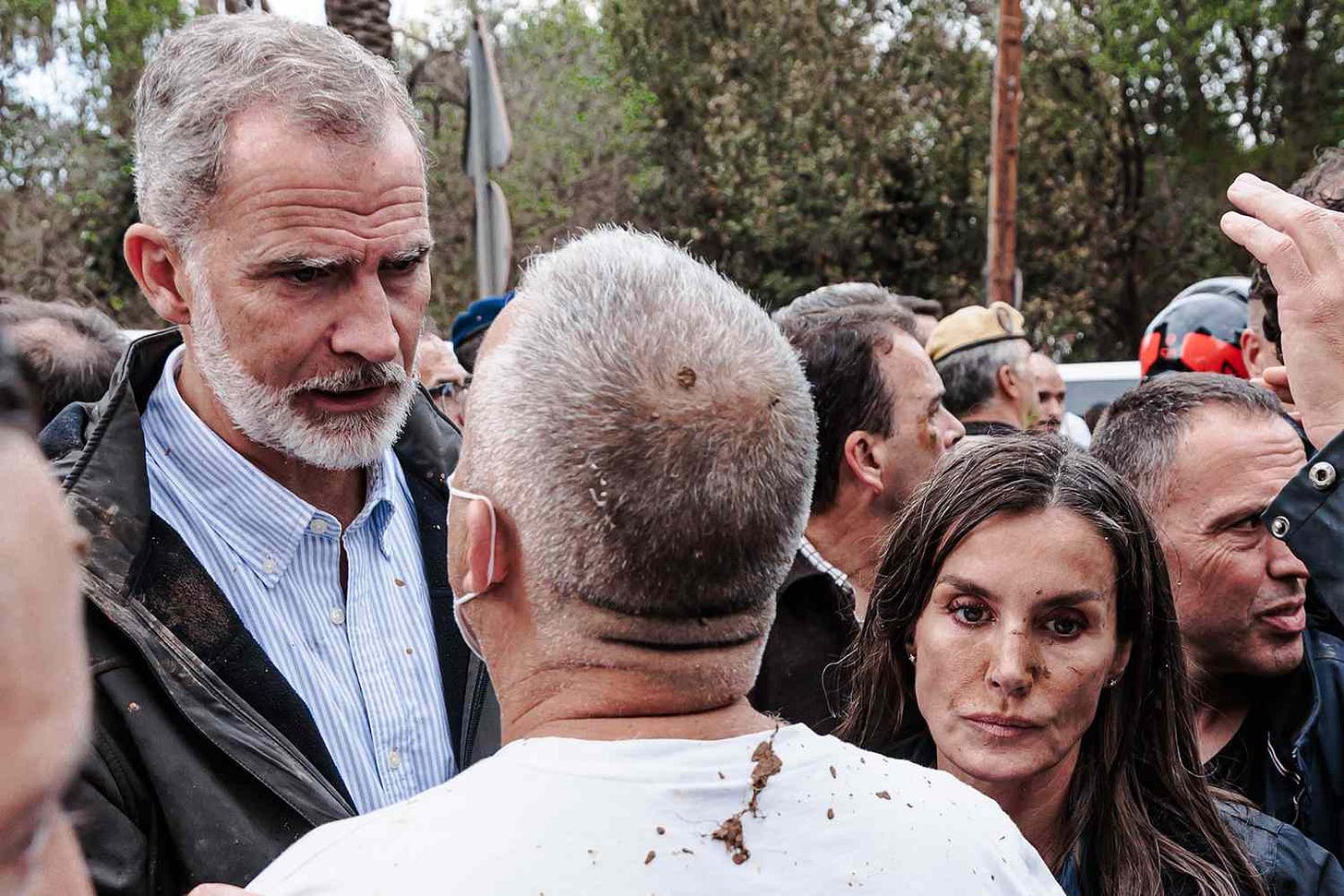
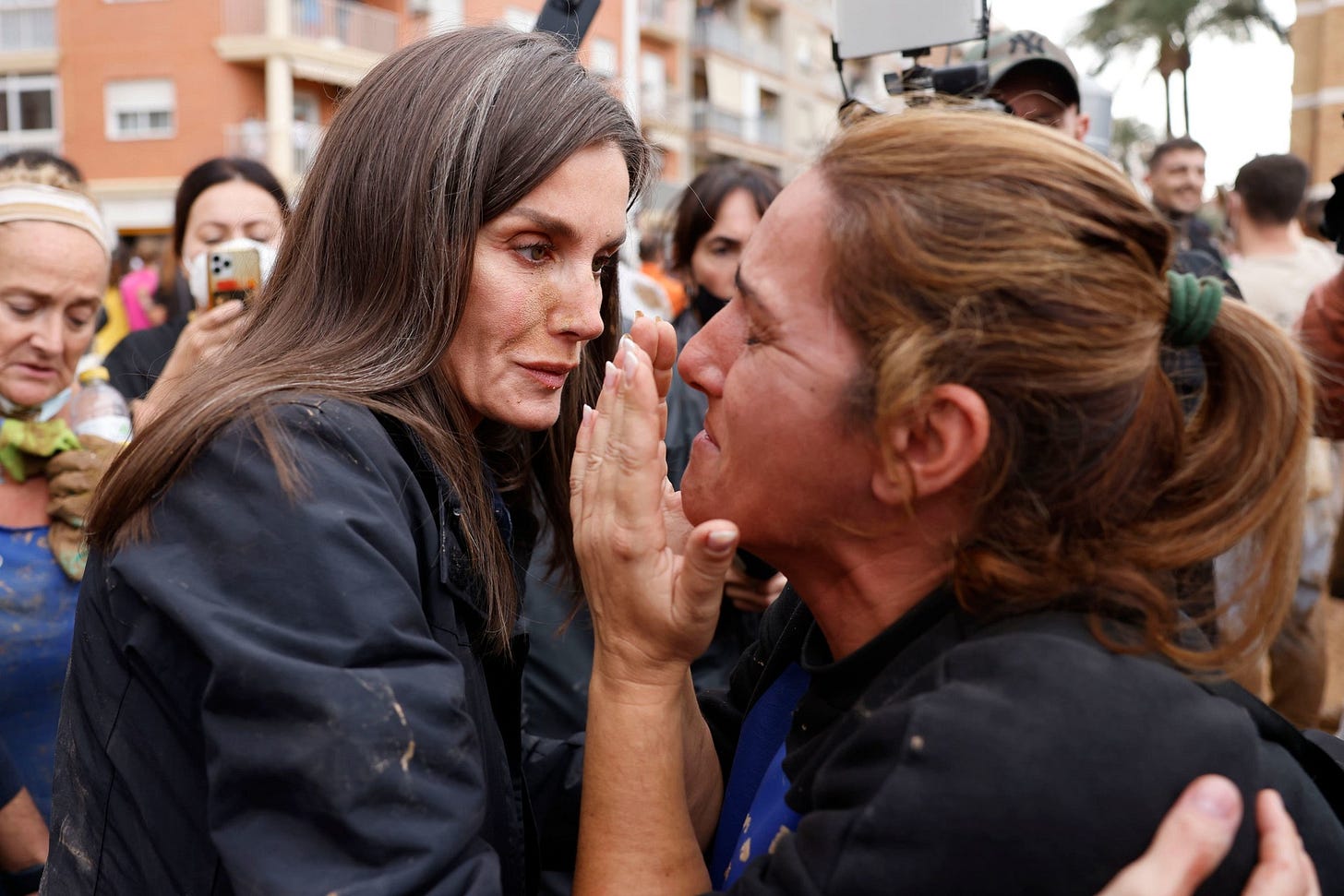

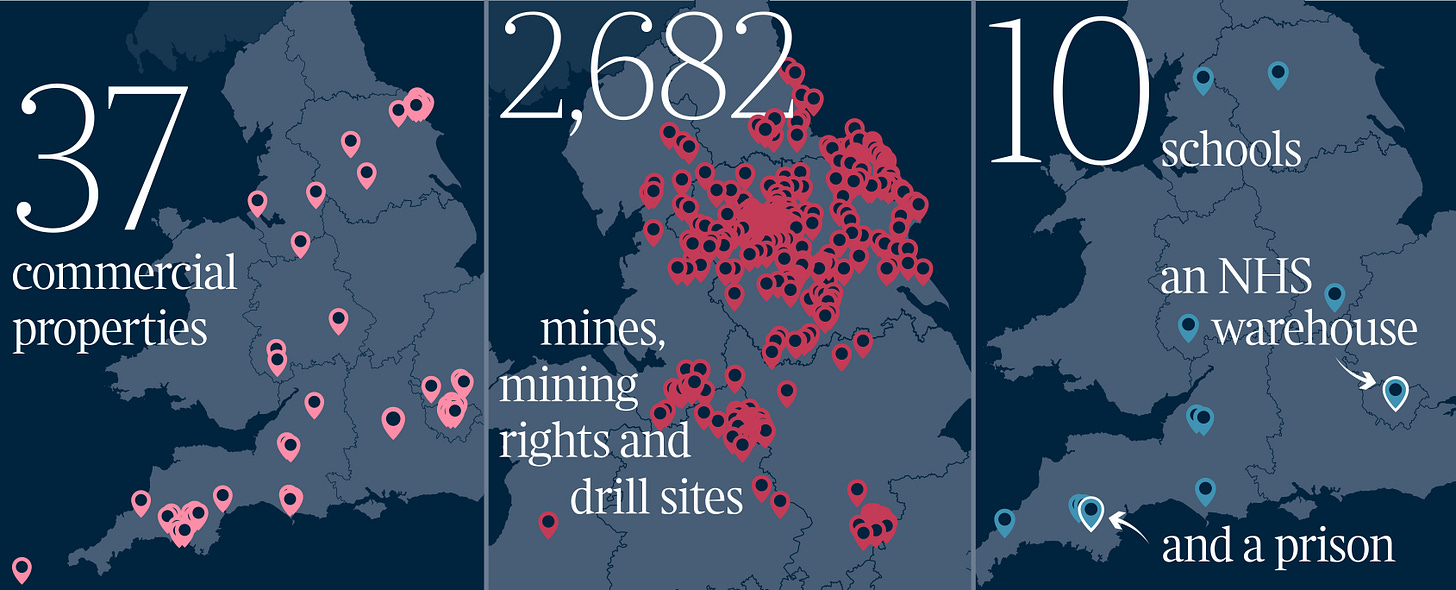
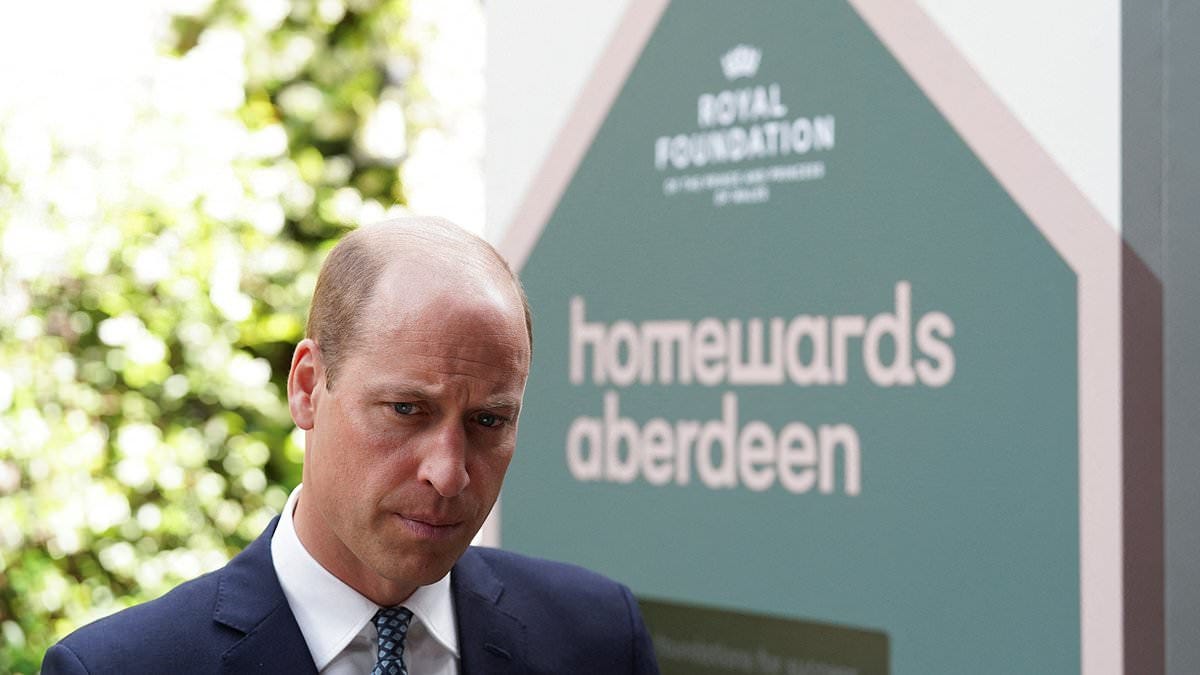
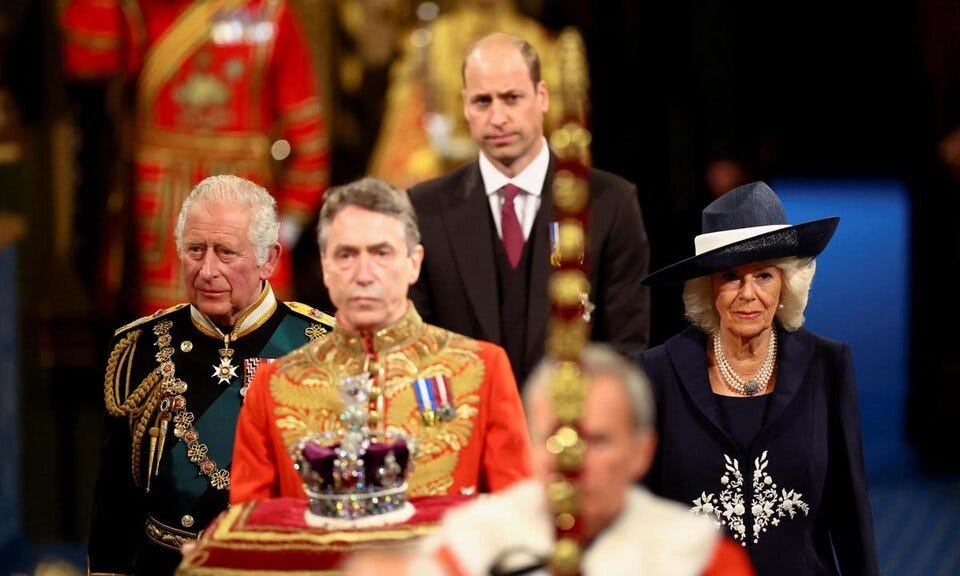
Charles holds Camilla's shoes as she goes barefoot onto the plane, leaving him behind. William wants to end homelessness while his own tenants live in substandard conditions. Felipe and Letizia continue their visit even when they have mud thrown on them. What a contrast!
Channel 4 is notoriously anti-Royal and as Charles and Camilla are increasingly popular, as are William and Catherine they needed to TRY to rake up some dirt. All the financial information is available online under Royal accounts. Nothing hidden here.
11 million pounds for rent for ambulance storage over 15 years,
in London is a good deal. If they could pay less, they would have.